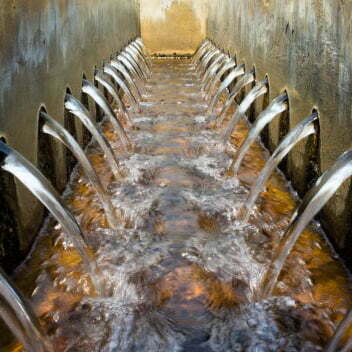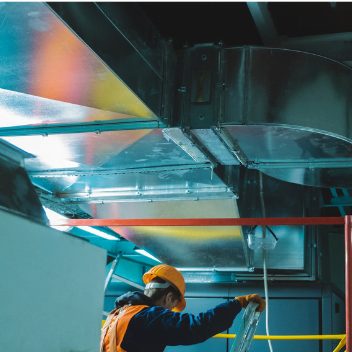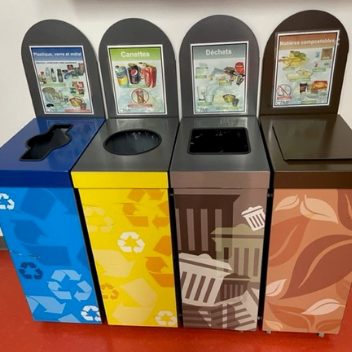We encouraged people to use the sorting stations rather than the office garbage cans. It was through the removal of the office garbage cans that we were able to encourage people to go to the sorting stations and sort the contents of their garbage cans. Nearly 691 lbs of recyclable materials were recovered.
Green stationery promotes the reuse of office materials Annually, a computer equipment collection activity is organized in order to make employees aware of the proper management of electronic waste. Nearly 691 lbs of recyclable materials were recovered. We make sure to use only 100% recycled fiber paper.
The Quebec government has granted financial assistance of $26.75 million to support investment and innovation projects valued at $160.5 million over 3 years.
In May, inauguration of the first Advanced Manufacturing Centre for Electronic Board Assembly and Printed Electronics in Canada. The Centre project is a total investment of $6.5 million. The Centre project is a total investment of $6.5 million. The Advanced Manufacturing Centre project, with a total investment of $6.5 million, was made possible thanks to the collaboration of the Université de Sherbrooke and Varitron for the scientific contribution and is financed by the Ministère de l’Économie et de l’Innovation du Québec ($3 million) and the C2MI ($2.1 million), while equipment suppliers contributed $1.4 million in value-added capabilities
Bromont Science Park is serviced by trails and multi-purpose paths allowing employees to walk or bike to work. To accommodate workers who choose alternative transportation ways, showers and bike racks are available as well as a public dual charging station for electric vehicles (1 station, 2 pistols). Charging stations for electric vehicles are offered free of charge to C2MI employees.
The manufacturing of microelectronic products requires an important volume of water, which must be ultra-pure. Before being used for production, the drinking water that arrives at C2MI goes through a series of filters, softeners, and reverse osmosis to deionize it. We have implemented a closed-loop deionized water recovery process that reduces the demand for drinking water by 30%, representing an annual saving of 53,610 liters.
The water recovery project consisted of targeting process water discharges that could be re-filtered by our facilities and reused in the processes. Control measures ensure that the reclaimed water meets the required parameters such as conductivity. If not, it is directed to water treatment.
On October 12th, at the IMAPS International Symposium, Catherine Marsan-Loyer, a member of the C2MI technical services team, was awarded a community recognition for writing a student essay: Characterization of a flux adapted to the dipping process for a fine pitch microchip brazing process.
To reduce energy costs, C2MI has implemented a global energy efficiency plan. As a result, a significant reduction in annual energy needs through the optimization of HVAC systems has resulted in annual savings of more than $2,000K. C2MI was able to reduce its annual natural gas consumption by 408,870 m3 and its electricity consumption by 1,623,828 kWh.
C2MI receives additional funding from the Centres of Excellence for Commercialization and Research (CECR) program. This investment of $8 million over 5 years confirms C2MI’s success in contributing to accelerated commercialization.
IBM Canada, in partnership with the Université de Sherbrooke, is awarded a NSERC-IBM Canada Industrial Research Chair in innovative microelectronic chip packaging. This Chair, with a budget of $9.1M over 5 years, allows to train approximately 50 students in an industrial setting with IBM engineers working at C2MI.
C2MI began its activities on November 1st, 2011. Its official inauguration was held in July 2012. Designated as a Centre of Excellence for Commercialization and Research (CECR) by the Canadian Network of Centres of Excellence (NCE). The Centre received a $14.1 million grant over 5 years to accelerate the commercialization of technology products.
The MiQro Innovation Collaborative Centre was made possible thanks to $218M in funding from the Ministère du Développement économique, de l’Innovation et de l’Exportation (MDEIE) ($94.9M), Industry Canada ($82.95M), private partners (IBM and Teledyne DALSA) and the Université de Sherbrooke as part of the Canada Knowledge Infrastructure Program.













